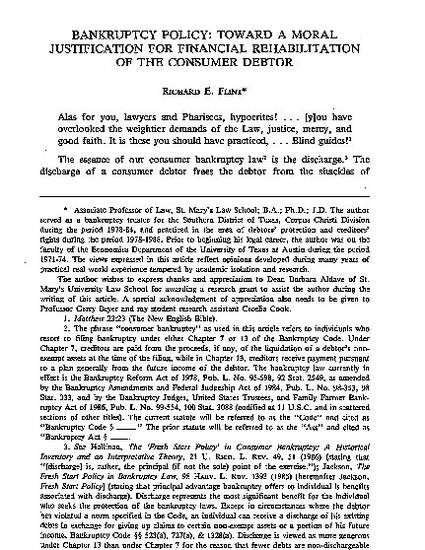
The central justification for the debtor financial relief provisions of the Bankruptcy Code is founded in a natural law theory of morality. The law reflects reason and conscience, and those fundamental principles of fairness and humanitarianism form the moral dimension of the debtor relief provisions of the Bankruptcy Code. Historically, America has recognized an objective moral dimension to the bankruptcy process, and Congress has continually enacted legislation implementing its fresh start policy, which strives to obtain goals that mirror that moral fiber.
This fiber is composed of two separate but mutually dependent strands of values, intertwined into a coherent plan of debtor financial relief. The first strand reflects the humanitarian concerns of the nation by stressing the fundamental dignity of every individual. This strand acknowledges the nation's awareness that the basic economic conditions of human well-being are essential to society's continued existence and are due members of society as inalienable rights. The second strand symbolizes the recognition by a debtor that in return for such rights, he has the duty and obligation to deal fairly with individual members of the nation. Together, these intertwined strands form the roots of an underlying moral foundation for debtor financial relief. These strands of mutual covenant signify the greatness of a nation that rejects economic action as an end in itself, and seeks justification on a higher plane.
